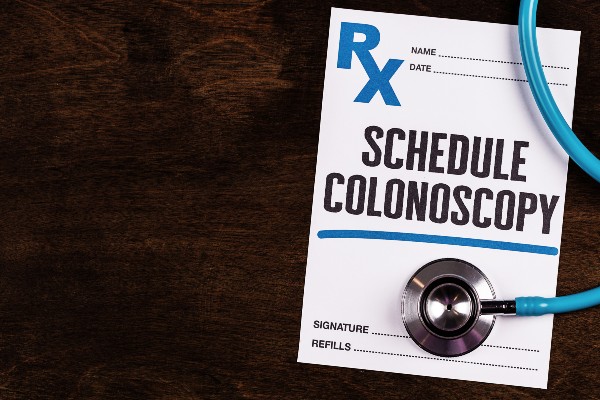Why Colonoscopies Are a Vital Screening Tool
Let’s be honest. Scheduling and preparing for a colonoscopy can be intimidating. We understand why putting it off may be tempting. But when you set emotions aside and consider the benefits, you can see more clearly why it’s such a vital screening.
Colon cancer is the third most commonly diagnosed form of cancer for men and women in the U.S., according to the American Cancer Society. With more public awareness of the benefits of colonoscopies, and more people getting them, the number of deaths from the disease has been falling. That’s because the earlier colon cancer is found and treated, the better the chance it can be cured.
“Guidelines call for most people who are not at a high risk of getting colon cancer to schedule their first colonoscopy at age 45,” says Frederick Gessner, M.D., board-certified and fellowship-trained gastroenterologist. “For some people with a higher risk, we will recommend starting younger. If we find cancerous polyps in their earliest stages, we can often remove them during the procedure.”
That’s why you owe it to yourself and your loved ones to get a colonoscopy. Not convincing enough? Here are three more reasons to schedule your colonoscopy sooner than later:
- Most people with early-stage colorectal cancer don’t have symptoms.
Colorectal cancer often doesn’t cause symptoms until it’s in advanced stages.
- Doctors can remove polyps during a colonoscopy.
A colonoscopy isn’t the only option for a colon cancer screening but it’s the only test that allows your doctor to examine the entire length of the colon. If doctors find precancerous polyps, they can be removed to prevent colon cancer.
Small polyps are generally benign (noncancerous) but larger ones may already be cancerous.
One study found that during colonoscopies, doctors remove benign polyps that would eventually cause 75 to 80 percent of colorectal cancers. The study, published by the Centers for Disease Control, found colonoscopy screening can reduce colorectal cancer cases by 83 percent and deaths by 89 percent.
- Colonoscopies are repeated less frequently than other colon cancer screenings.
Other screening options for colon cancer, such as stool based DNA tests and fecal immunochemical tests (FIT), must be repeated more often than a colonoscopy – some yearly, some every three years, depending on the test.
With a more thorough colonoscopy, you won’t need to repeat a colonoscopy for five to 10 years, depending on if any polyps are found and your risk factors for colon cancer.
“If no polyps are found and the patient is low risk, we tell them they can return in 10 years,” Dr. Gessner says. “This is because it takes a precancerous polyp about 10 years to grow into a cancerous polyp.”
Talk with your primary care provider and learn more about scheduling your screening.
Resources:
- American Cancer Society:https://www.cancer.org/
- Centers for Disease Control and Prevention: https://www.cdc.gov/



